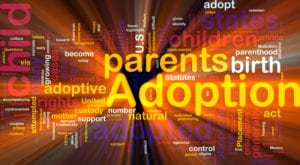
In the previous article we introduced the subject of adoption here in Michigan, and discussed the fact that it’s a subject that doesn’t get a lot of coverage, unless you happen to be directly involved. In an effort to make information more readily accessible to people who may have considered adopting but are perhaps unsure about what’s involved, we’ve put together this question and answer series, addressing common adoption questions. This way, we hope to clear up any confusion you may have had about local adoptions. So, let’s dive right back in…
Can you only adopt a child who shares your race and/or ethnicity?
In the United States, federal law forbids the delay or the denial of adoptions of any child in foster care, based on race or ethnicity. Specifically, this means the race or ethnicity of the child to be adopted, and the race or ethnicity of the prospective parents. The only exception to the rule is with regards to Native American children, where certain special considerations do apply.
Because transcultural and transracial adoptions do sometimes present families with certain very specific challenges, the US Department of Health and Human Services aims to ease the transition as much as possible. The Child Welfare Information Gateway provides a substantial list of links to articles and websites that deal specifically with interracial and transcultural adoption concerns.
Can birth parents or relatives take adopted children back?
This is a big one! Many prospective parents are very concerned about adopting a child – going through the time-consuming and emotionally challenging process of an adoption, only to have their new child snatched back just when everyone was settling into their new routine. It’s a very legitimate concern, but one that is completely unfounded.
The answer is no! In truth, an adoption is a legally binding contract, which does not take place unless the parental rights of the child’s biological parents have been legally terminated. Sustained contact between an adopted child and their birth parents is very rare and, although it does happen, adoptions that are legally challenged by the birth parents are even more rare.
Is it true that only married couples can adopt children?
This is very definitely not true. In most cases, the marital status, age, gender, religious affiliation, sexual orientation, and cultural orientation do not disqualify a person from adopting a child in foster care. There is no requirement that the parent or parents be married, that one is a stay-at-home parent, or that they meet a certain income requirement.
Recent statistics show that almost one third of adoptions were to unmarried couples or single parents. This includes members of the LGBT community. In most cases, it is much more important to adoption agencies and to the state, that a prospective parent is mature, stable and dependable.
Michigan does have a law that allows private adoption agencies to deny prospective parents the ability to adopt based on religious beliefs. This means that if an adoption agency is affiliated with a specific church or faith that does not accept LGBTQ people, they may deny them the right to adopt. However, this does not prevent those same prospective parents from seeking out adoption options through other agencies or through the state.
Join us next time, as we continue this discussion about adoption in Michigan, and address the common questions and concerns that people have about the process. Until then, if you or a loved one are in need of assistance with any family law matter, please don’t hesitate to contact us. Our experienced family law attorneys have spent decades assisting the people of mid-Michigan with everything from divorce and custody, to CPS defense and paternity. We can help you too.


